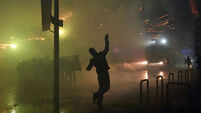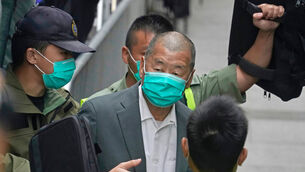Hostages tell of Afghan ordeal
Two journalists held hostage by the Taliban for 18 months in Afghanistan have arrived home in France to an emotional welcome.
Television reporter Herve Ghesquiere, 47, tears of joy in his eyes, described being confined indoors “23 and three-quarters hours a day” and repeatedly having his hopes raised of an imminent release – and then dashed.














